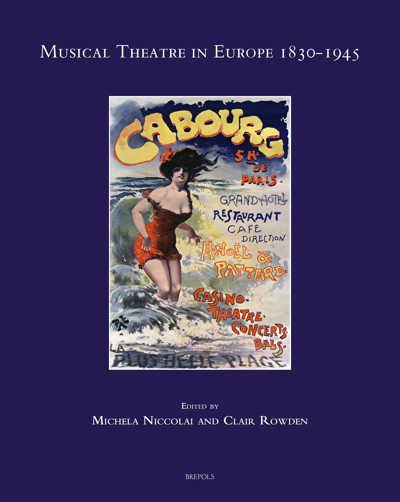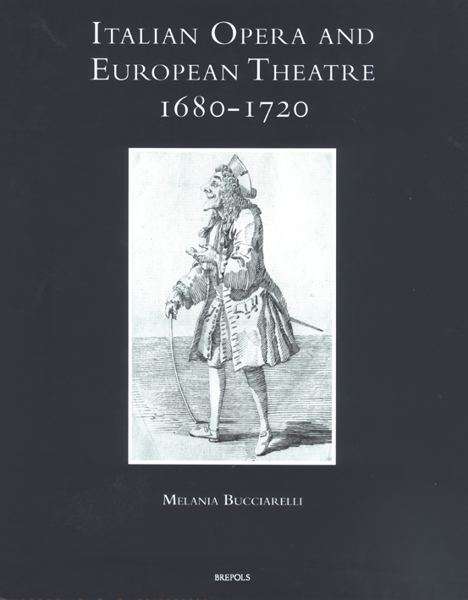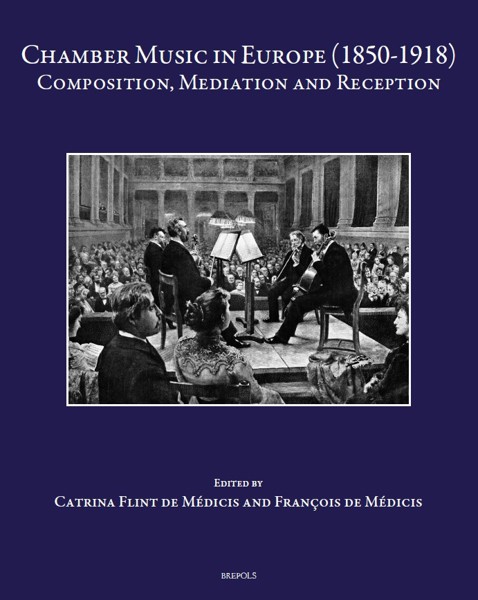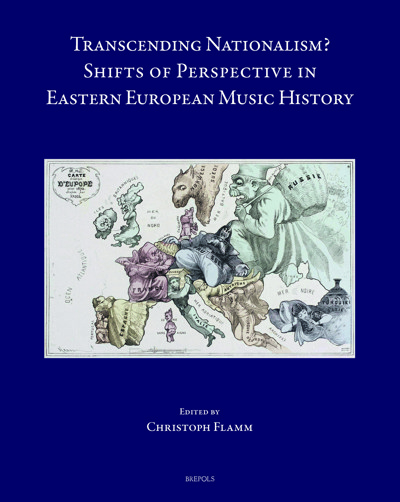
Of Signs and Sounds
Musical Interpretation and Performance from the 19th to the 21st Century
Rémy Campos, Arthur Macé (eds)
- Pages: xii + 395 p.
- Size:210 x 270 mm
- Illustrations:59 b/w, 5 tables b/w., 50 musical examples
- Language(s):English, French
- Publication Year:2025
- € 145,00 EXCL. VAT RETAIL PRICE
- ISBN: 978-2-503-62179-1
- Hardback
- Available
This volume aims to outline a number of significant trends in historically informed performance studies
Rémy Campos is professor of music history at the Conservatoire de Paris and head of research at the Haute école de musique de Genève. His past work has focused on the history of conservatoires (Paris and Geneva) and the historiography of music. His current research is devoted to music performance practice during the 19th and the 20th centuries. His last publication is Debussy à la plage (Gallimard, 2018).
Arthur Macé is a research officer at the Conservatoire de Paris, where he coordinates and promotes the institution’s research output across various disciplines. A member of the SACRe-PSL laboratory and the Georg Simmel Center, his work focuses on 19th- and 20th-century musical institutions and associations.
Over the last few decades, scholarly literature dedicated to historically informed performance has proliferated. Numerous publications, the creation of specialised collections and dedicated research teams have all contributed to the development of an ever-expanding scientific library. This vast repository of knowledge comprises not just written publications, but also countless recordings and performances, as well flourishing. Paradoxically, as new research methods developed, the terra incognita simultaneously seemed to expand. This volume does not attempt an exhaustive synthesis but instead aims to outline a number of significant trends within the field of historically informed performance studies, as practised in conservatoires and universities. The fifteen texts gathered in this volume can be read both as contributions to specific areas of performance studies as well as methodological proposals inviting cross-disciplinary reflection. The first part of the book, which examines among other topics music engraving, the theory and hermeneutics of the sign, and performers' annotations, puts forward new proposals for the analysis of the musical sign. The second part deals with the growing field of recordings analysis and reenactment, looking at leading artists (e. g. Georges Enesco, Vlado Perlemuter, Sarah Bernhardt or Charles Ives).
Rémy Campos – Arthur Macé
Foreword
Rémy Campos
Historically Informed Performance: An Unsolvable Problem?
Renewed Analysis of Signs
David Rowland
Composers, Engravers and Piano Music Texts in the Long Nineteenth Century
Nir Cohen-Shalit
Annotations in Performance Material of 19th-Century German Orchestras
Inès Taillandier-Guittard
L’expression pianistique au défi de la notation: écrire et enseigner l’expression dans le long XIXe siècle
Du Chao
Au bout des doigts: les partitions annotées d’Yvonne Loriod à la Bibliothèque nationale de France
Hector Cornilleau
Décrire et exemplifier les principes d’exécution: vers une théorie du signe musical de l’Empire à la monarchie de Juillet?
Reenacting Sounds and Gestures
Massimo Zicari
Reconstructing a Living Tradition: The Early Recordings of Donizetti’s Lucia di Lammermoor
Manuel Bärtsch
In Search of Cortot’s Beethoven
Julien Szulman
Georges Enesco interprète du Poème d’Ernest Chausson
John Kamfonas
The Piano Recordings of Charles Ives: Understanding Instrumental Practice as an Extension of Work Creation
Guillaume Tardif
Directionality & Intentionality: Perspectives on Phrasing in String Playing in the 19th & 20th Centuries
Martin Knust
Re-Enacting Wagner in the 21st Century
Anne Pellois – Tomas Gonzalez
Cinq fois Phèdre: protocoles de réactivations de performances passées à partir d’une partition vocale
Pierre Goy
Apprendre par la copie: une voie d’accès au style ravélien
Inja Stanović
Historically Informed Recording: Early Recordings Association’s Violin Case-Study
Abstracts and Biographies
Index of Names




